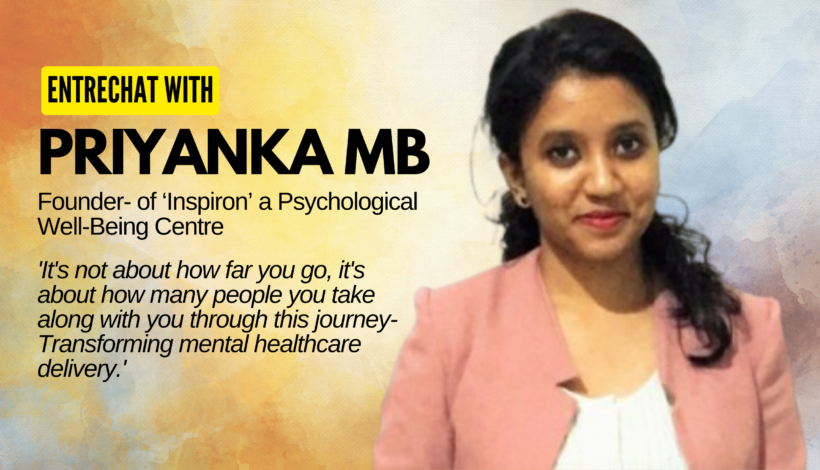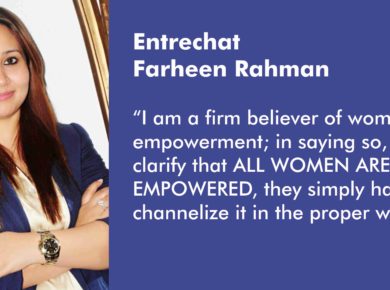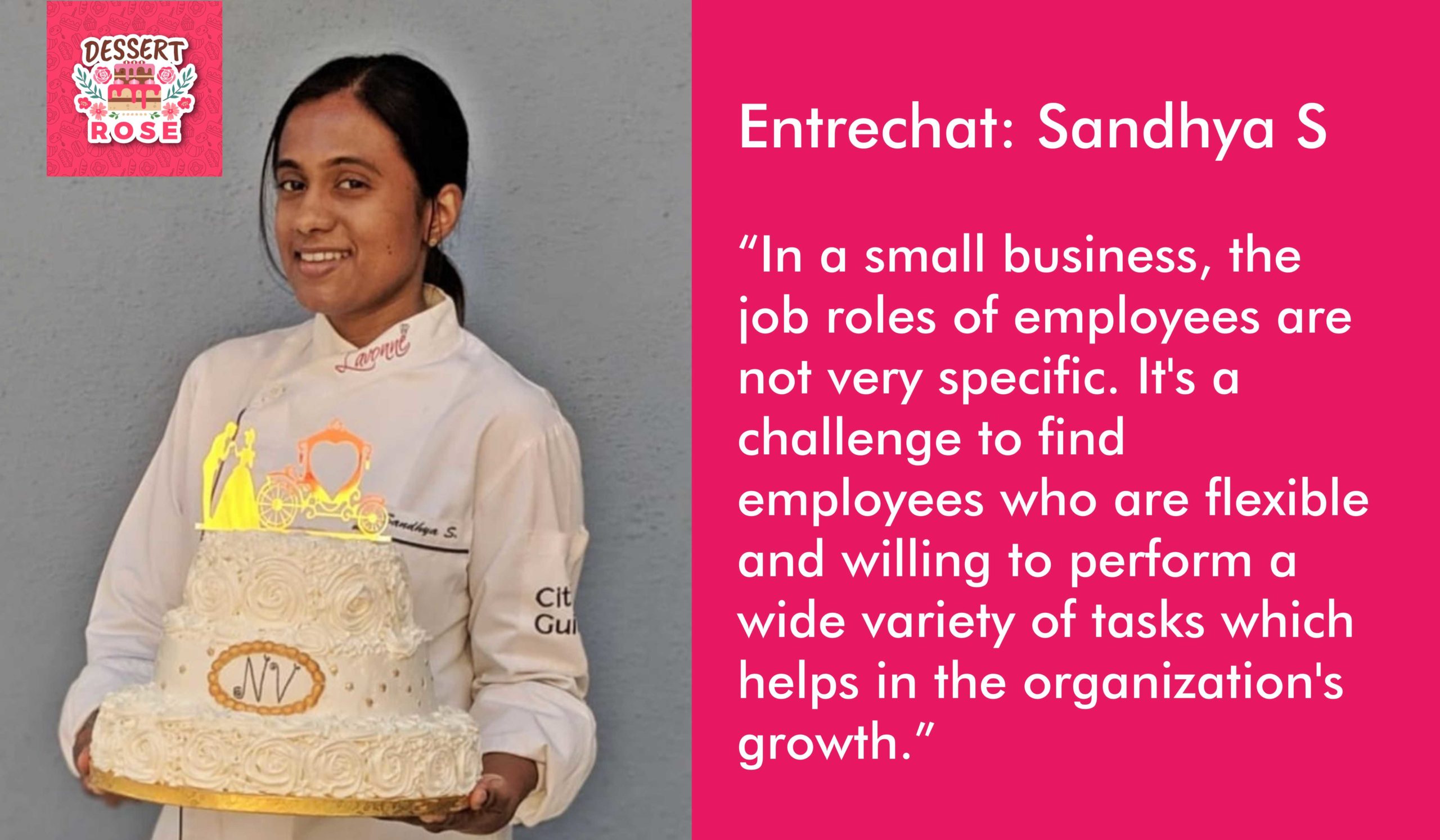The past two years have brought the importance of mental well-being into the limelight, albeit under unfortunate circumstances. Today, mental health has become an important part of the public conversation, as many Olympic athletes, celebrities, and other public figures have come forward to openly talk about their mental health issues to help reduce the stigma often associated with it. As we enter the pandemic-generated new era, we can expect mental health to continue to be a top priority in the coming years particularly as the world reckons with a growing mental health crisis. Along these lines, I, Poonam Sinha from Sheatwork, have the privilege of conversing with Priyanka MB, Founder- of ‘Inspiron’ a Psychological Well-Being Centre. She is a Social Entrepreneur and Psychologist, working towards providing quality mental healthcare. She aspires to transform emotional wellness through scientific and solution driven models that de-stigmatize seeking support and making it more accessible and affordable for people at large.
Quote – ‘It’s not about how far you go, it’s about how many people you take along with you through this journey- Transforming mental healthcare delivery.’
Q1. What encouraged you to embark on the entrepreneurial journey?
‘One to one’ or ‘One to many’? An important question I have often pondered over. In the healthcare industry, the challenges are endless, while alongside, the rewards of recovery and healing of your patients, is highly noble and satisfactory.
My vision became stronger when I recognized and identified the lacuna in the mental healthcare field. Starting from the stigma, lack of awareness, ignorance, dearth of mental health professionals and poor quality of delivery, this nascent field required rewiring of the system and in the minds of people.
Personally, I realised that an individual, can alone not bridge the requirements of the field. Statistics and research stated that the availability of a psychiatrist to patient ratio was 1 :400000 and 1 in every 4 individuals experienced depression or anxiety in one or the other point of time in their life. Of them, 85% , did not seek treatment for various causes such as lack of availability of services or awareness of treatment options.
Interestingly enough, my inclination towards social entrepreneurship was duly supported by my mentors, teachers, family and friends. Change, Transformation and Growth was my goal from as early as when I was 16 years of age. Growing up, I saw my parents ‘do their dues’ to society, and I picked up on their teachings.
Learning through the years, I knew we had to build a system to address the concerns faced in our industry. Therefore, Inspiron, is built on the premise to improve delivery of mental healthcare, while making the services affordable and accessible. Intensive research, experimentation, risk taking and learning led to the start of my entrepreneurial journey. We as an organization, started with conducting free sessions, to test the market and build our prototype.
Typically, we started at a garage, moved to a Café and then set up our first centre in 2017 in Indiranagar, Bangalore.
Q2. What according to you, are some strengths that women entrepreneurs must possess?
‘Keep moving forward and you will see, the marks you’ve left behind’. Resilience is the key to
achieving the vision, you set for yourself.
On a personal note, I believe that leadership, passion, perseverance, empathy, and enhancing the zest to keep learning, are traits which will take you far in your journey. I also believe, that having a growth mindset, along with creative and logical thinking, and the ability to make informed choices while having the resilience to take risks are important in the field of entrepreneurship.
When it comes to your venture, ensure that you connect to your consumers’ needs, and convert what you have in front of you to build marketplace opportunities.
Q3. Very often we witness a stigma latched onto the concept of seeking mental health support. How have you de-stigmatized it?
I always learnt that, ‘If you want to make a change, make it BIG’. Making it big means touching upon more lives. As an entrepreneur, I started on a very small scale, typically from a garage space. While I paddled into understanding the needs and requirements of the industry, I recognized that de- stigmatizing mental healthcare could begin with providing warm and safe spaces such as a café-like environment to patients.
We set up our first café-based experience to test the waters, becoming the country’s first psychological wellbeing centre. And over a period of a year’s time, we saw that people were more open to walking into a café- based setting rather than a hospital setting. This led to our concept “Consultation Over Coffee” taking wings. We saw that clients were able to express themselves more when it was made easy for them, through a warm setting, and a convenient place to be able to just be themselves.
Our second approach was to use more creative forms of therapy, like art, dance, music, and animal-assisted therapy to foster and enable expression which leads to healing. A combination of standardized and scientific tools leads to the culmination of the best use of psychiatric practices by our team of mental health professionals who are certified and qualified in the field.
Third, for better reach and accessibility we introduced digital mental health kits for self-care. In this manner, we were able to provide services for all severities of mental health. From stress, depression, and anxiety to severe psychiatric conditions.
We began to advocate the importance of mental healthcare through more awareness programs and campaigns. We also streamlined our services to cater to our target population: the general public, corporate enterprises, and educational institutions.
Q4. Could you tell us about the challenges faced by you in the process?
As a practitioner who was just starting out with a venture, I, too, was faced with the obvious challenges of getting more funding opportunities to scale, and find a team and co-founders to work towards the vision.
The pandemic helped in building more awareness about mental health, however, it did pose a challenge to pursue in-person sessions for a certain period which did impact the business model.
Q5. Where do you see yourself 10 years down the line?
In 10 years, I want to see Inspiron, as a global brand for Mental healthcare partnerships and services. Advocacy and intervention are the most important verticals of the business. Scaling with more hospitals and clinics, and wellness spaces will be the priority, while parallelly we will hold a strong base in the digital market place with AI based solutions, robotics, tele-medicine etc.
We will be the one stop solution in the Mental health space with educational institutions, research labs and regulatory boards for standardized treatment delivery as well. We aim to provide mental healthcare first aid kit to every household, in order to build happier and healthier homes.
I also see myself being a board of the highest delegate for mental health advocacy, changing policies, administrations, regulatory boards, setting up educational institutions that facilitate learning, internships, training, exposure, research and technology in the field.
Q6. What advice would you give to budding women entrepreneurs, especially those aspiring to venture into the mental wellness zone?
To all the women entrepreneurs in my field and otherwise, I would like to say ‘Believe in yourself’. Stay close to your ‘Why’, and build an attitude of the ‘Growth mindset’. Remember your passion, that led you to embark this journey of entrepreneurship, meanwhile, also build a support system that will help as a crutch during rough stages.
‘Stay relevant’- which means you need to understand your marketplace opportunities. Women are known to be great communicators, use that to connect with people and achieve your goals. Gain clarity, build confidence and communicate effectively. Know your business verticals, be versatile. Focus on all areas that influence your business growth, that includes finance, accounting, administration, operations, research and development, Human Resource Development, and marketing and sales models.
Most importantly, keep reminding yourself about your goal. Hold on to it, and believe in yourself. Increase the scope for people to see you as an aspirant and achiever of success, rather than a follower. Finally, ‘keep moving on’, know that a business runs with leadership, your team and consumers. Know when to prioritize and never lose sight of the vision.










